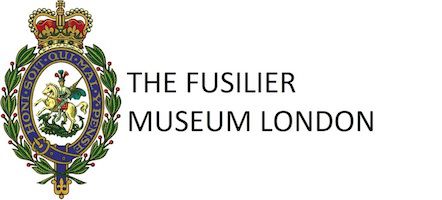Three British Military Medals from World War One.
The three most awarded military medals of the First World War were the 1914/1914-1915 Star, the British War medal and the Victory medal. These medals are often referred to as ‘Pip, Squeak and Wilfred’ after the characters in the popular 1920s Daily Mirror comic strip written by Bertram Lamb and drawn by Austin Bowen Payne.
During the 1920s the British War and Victory medals were issued to all Servicemen who had served overseas. The 1914 and 1914-15 Stars were only awarded to those who met a particular set of criteria (see below). Those who had remained in Great Britain during the war were not entitled to any of these awards.
 “Pip, Squeak and
Wilfred.” Wikipedia. Accessed 28/03/2018
“Pip, Squeak and
Wilfred.” Wikipedia. Accessed 28/03/2018
The 1914 Star ‘Mons Star’ (Pip)
 Authorised in 1917 it was only awarded to those who had served in France or Belgium between the 5th August and 22nd November 1914 and included naval and marine servicemen as well as the army.
Authorised in 1917 it was only awarded to those who had served in France or Belgium between the 5th August and 22nd November 1914 and included naval and marine servicemen as well as the army.
 A small bronze clasp stamped ‘5th AUG. - 22nd NOV. 1914’ was sown to the ribbon and signifies that the person receiving the medal had served under fire. Five out of every seven medals were issued with the clasp. The rear of the medal is stamped with the recipient’s name, rank, service number and unit.When worn as a medal bar a silver heraldic rosette is attached to the ribbon.
365,622 1914 Stars were awarded.
A small bronze clasp stamped ‘5th AUG. - 22nd NOV. 1914’ was sown to the ribbon and signifies that the person receiving the medal had served under fire. Five out of every seven medals were issued with the clasp. The rear of the medal is stamped with the recipient’s name, rank, service number and unit.When worn as a medal bar a silver heraldic rosette is attached to the ribbon.
365,622 1914 Stars were awarded.
The 1914-15 Star (also Pip)
 Authorised in late 1918 this medal was awarded to those who fought in any theatre of war between the 5th August 1914 and the 31st December 1915. This included the Gallipoli Campaign. It was not awarded to those who had received the 1914 Star. The rear of the medal was stamped with the receivers name, rank, service number and unit. Approx. 2,400,000 1914-15 Stars were awarded.
Authorised in late 1918 this medal was awarded to those who fought in any theatre of war between the 5th August 1914 and the 31st December 1915. This included the Gallipoli Campaign. It was not awarded to those who had received the 1914 Star. The rear of the medal was stamped with the receivers name, rank, service number and unit. Approx. 2,400,000 1914-15 Stars were awarded.
The British War Medal (Squeak)
 Authorised in July 1919 for those who fought in the British and Imperial Forces between 5th August 1914 and 11th November 1918, although this date was extended to 1920 to cover naval mine clearance operations and army involvement in North and South Russia. To receive the award a soldier must have entered a theatre of operations or served overseas and for a minimum of 28 days unless killed in
action. Approx. 6,500,000 British War Medals were awarded plus 110,000 awarded to foreign labour corps who served in a live theatre.
Authorised in July 1919 for those who fought in the British and Imperial Forces between 5th August 1914 and 11th November 1918, although this date was extended to 1920 to cover naval mine clearance operations and army involvement in North and South Russia. To receive the award a soldier must have entered a theatre of operations or served overseas and for a minimum of 28 days unless killed in
action. Approx. 6,500,000 British War Medals were awarded plus 110,000 awarded to foreign labour corps who served in a live theatre.
 Authorised in September 1919 this medal was issued for those seeing service abroad between the 5th August 1914 and 11th November 1918 but as with the British War medal extended to cover operations at sea and in North and South Russia until 1920. Most of the recipients of this award also received the British War Medal. Similarly those seeing service only in Great Britain did not receive this award. The basic design of this medal was used as a Victory Medal for most of the allied countries taking part in the war. Approx. 6,340,000 Victory Medals were awarded. British and Victory Medals were always awarded to those receiving the 1914 and or 1914-15 Star.
Authorised in September 1919 this medal was issued for those seeing service abroad between the 5th August 1914 and 11th November 1918 but as with the British War medal extended to cover operations at sea and in North and South Russia until 1920. Most of the recipients of this award also received the British War Medal. Similarly those seeing service only in Great Britain did not receive this award. The basic design of this medal was used as a Victory Medal for most of the allied countries taking part in the war. Approx. 6,340,000 Victory Medals were awarded. British and Victory Medals were always awarded to those receiving the 1914 and or 1914-15 Star.